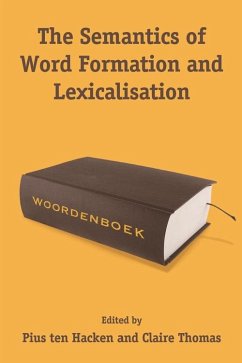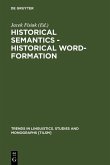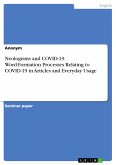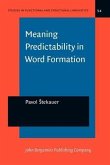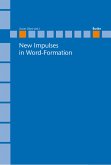In the study of word formation, the focus has often been on generating the form. In this book, the semantic aspect of the formation of new words is central. It is viewed from the perspectives of word formation rules and of lexicalization.Each chapter concentrates on a specific question about a theoretical concept or a word formation process in a particular language and adopts a theoretical framework that is appropriate to the study of this question. From general theoretical concepts of productivity and lexicalization, the focus moves to terminology, compounding, and derivation. The theoretical frameworks that are used include Jackendoff's Conceptual Structure, Langacker's Cognitive Grammar, Lieber's lexical semantic approach to word formation, Pustejovsky's Generative Lexicon, Beard's Lexeme-Morpheme-Base Morphology, and the onomasiological approach to terminology and word formation. An extensive introduction gives a historical overview of the study of the semantics of word formation and lexicalization, explaining how the different theoretical frameworks used in the contributions relate to each other.
Dieser Download kann aus rechtlichen Gründen nur mit Rechnungsadresse in A, B, BG, CY, CZ, D, DK, EW, E, FIN, F, GR, HR, H, IRL, I, LT, L, LR, M, NL, PL, P, R, S, SLO, SK ausgeliefert werden.

